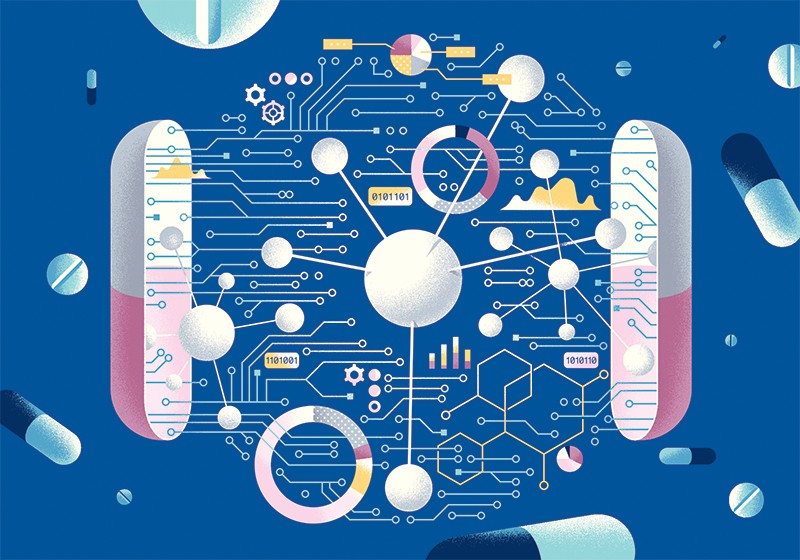A drastic increase in data digitalization in the pharmaceutical field has motivated the use of artificial intelligence (AI) technologies. The main application scenarios of AI to drug development include target prediction, high-throughput screening, drug design, and prediction of ADMET properties (absorption, distribution, metabolism, excretion, and toxicity). AI solutions can improve the predictability, speed, and accuracy of drug discovery, and ultimately accelerate the productivity of the entire drug development process.
 Figure 1. AI is changing drug discovery. (Illustration by Michele
Marconi)
Figure 1. AI is changing drug discovery. (Illustration by Michele
Marconi)
Creative Biostructure has been adopting various strategies to actively integrate AI technologies into the drug discovery process. We have established a cross-functional team composed of biologists, chemists, data scientists, and AI experts. We can utilize your specific research data and drug target information to build models for screening and optimizing drug candidates.
Our team of scientists is working to integrate advanced technologies in high-quality data acquisition and machine learning algorithms related to drug discovery. As each project progresses, experimental data from each cycle allows building and improving project-specific local models.
In the process of quantitative structure-activity relationship (QSAR) analysis based on machine learning, suitable compound data are selected to construct the training set and test set to generate reliable models. These models are applied to new compounds to construct affinity fingerprints and are utilized to train and predict models with relatively little data.
Using deep learning algorithms and computing capabilities, through the extraction, integration, and machine learning of existing compound databases, key information related to compound effectiveness and toxicity is obtained, which greatly improves the efficiency and success rate of virtual screening . Moreover, the deep neural networks (DNNs) show good performance in predicting physicochemical parameters and ADMET properties.
Creative Biostructure provides customers with comprehensive drug discovery solutions and integrates AI technologies into drug discovery projects. By reducing the number of candidate compounds by hundreds, we can help you greatly reduce the time and cost of discovering and developing new drugs.
Reference
Related Sections

Easy access to products and services you need from our library via powerful searching tools